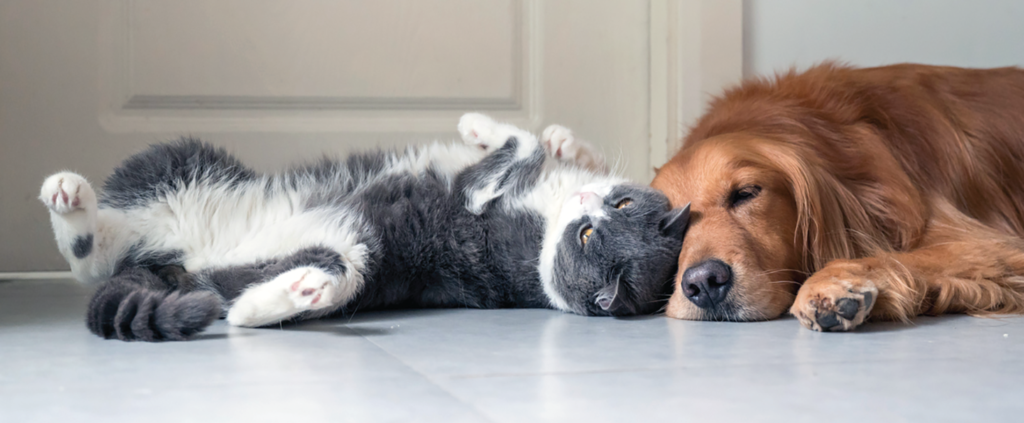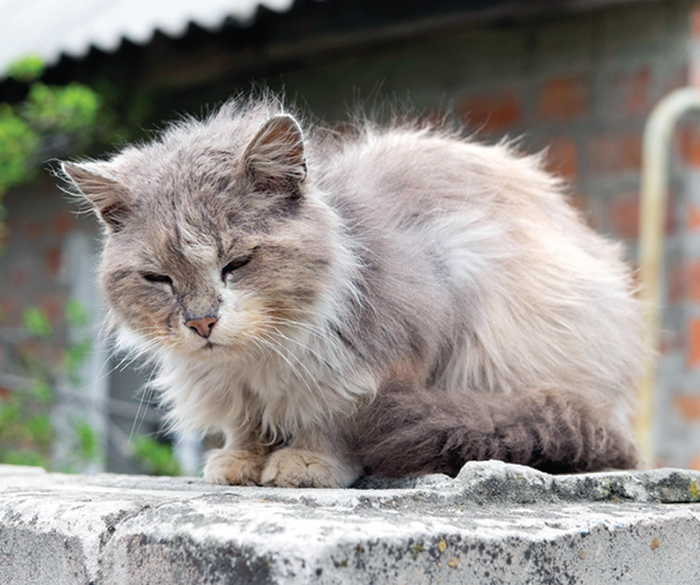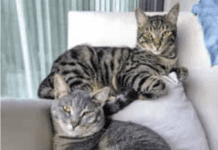Feline immunodeficiency virus (FIV) is a retrovirus that infects cats worldwide. Like the human immunodeficiency virus (HIV), FIV suppresses the immune system. For this reason, cats infected with FIV can succumb to other infections their immune systems can’t fight off. It’s important to realize, though, that most cats with FIV infections live normal lifespans with a high quality of life.
“The most important aspects of managing an FIV+ (positive) cat is avoiding other infections, minimizing stress, and being proactive about health care by doing things like keeping infected cats indoors, avoiding crowded housing conditions, making regular trips to the veterinarian, acting quickly if any signs of illness are observed, and perhaps, by vaccinating against other infectious diseases, although this is a controversial topic that should be evaluated on a case-by case basis,” says Bruce Kornreich, DVM, PhD, Dipl ACVIM, director of the Cornell Feline Health Center.
What You Should Know About FIV Testing
Testing all cats for FIV is important. You want to be able to give an infected cat the care it needs and help minimize spread of the virus. If you’re adopting a cat from a shelter, get a copy of its FIV test report. If you’ve adopted a stray, ask your veterinarian to do an FIV test (he or she will likely recommend this test anyway).
- Positive is forever: Once a cat tests positive for FIV, that cat is considered positive forever. Luckily, available tests, which screen for the presence of antibodies against the virus, are fairly accurate. There are, however, a couple of situations that can result in false negative and false positive results.
- False negatives: These can arise if a cat is tested before an infected cat has had time to mount an immune response against the virus. Any newly rescued cat that tests negative should be retested 60 to 90 days later to be sure.
- False positives: Kittens getting antibodies from an infected mother through her milk will often test positive even if they are not infected. If your kitten tests positive for FIV, have her retested after 6 months of age, when maternal antibodies will have dissipated.
- Vaccinated cats will test positive: Any cat that has been vaccinated for FIV will test positive, even if not infected. The most common in-clinic tests cannot distinguish between antibodies from natural infection and vaccine-induced antibodies. Because the FIV vaccine was discontinued in the United States several years ago, this is not a big concern, but because FIV cats live a long time, there may still be some FIV-vaccinated cats out there. When in doubt, polymerase chain reaction (PCR) testing, which detects actual viral RNA or DNA, can be done to confirm infection status.
How Do They Get It?
FIV is spread primarily through the saliva of an infected cat, almost always during aggressive encounters that result in deep bite wounds. Casual contact with infected saliva, as happens with grooming each other or sharing water and food bowls, is typically not enough to infect a cat. This is good news for indoor cats. If your cat has tested negative for FIV and never goes outdoors or sees another cat, there is very little risk of infection.
Not suprisingly, FIV is frequently found in stray and feral cat populations. Unneutered males, because of their tendency to suffer deep bite wounds from fighting, are especially at risk. As more of these FIV+ cats are being rescued and offered for adoption, here’s what you need to know if you are considering adopting an FIV infected cat.
First, keep all FIV infected cats indoors so they cannot spread the virus. If you have a cat that isn’t infected with FIV, it is OK to adopt an FIV infected cat and bring him into your home as long as there are no aggressive interactions between the two cats.
Second, remember that FIV is not a death sentence. There are three stages of infection, the middle one being the dormant, asymptomatic phase that can last for many years. Some cats never progress beyond this dormant middle phase, so don’t let fear of a shortened lifespan keep you from opening your heart and your home to an FIV+ cat.
During the initial phase of infection, which can last between eight and 12 weeks, cats may show fever, loss of appetite, and lymph-node enlargement. As mentioned above, the next (dormant) phase can last for years, although some cats may experience a painful inflammatory condition in the mouth called gingivostomatitis.
The final phase, the clinical or terminal phase, is when infected cats start to suffer from secondary infections, including neurological disease and cancers, which are frequent causes.
Human Health Concerns
A note from the Cornell Feline Health Center: Although FIV is similar to human immunodeficiency virus (HIV) and causes a feline disease similar to acquired immune deficiency syndrome (AIDS) in humans, it is a highly species-specific virus that infects only felines. There is currently no evidence that FIV can infect or cause disease in humans.
Management of FIV Infected Cats
Keep FIV+ cats indoors to limit exposure to infectious agents and parasites that they may not be able to fend off. See your veterinarian at least twice a year and discuss obtaining bloodwork to screen for health problems proactively.
Feed a commercial (or veterinary nutritionist-designed) balanced and complete diet and avoid raw diets, as these can be contaminated with bacteria or parasites.
Keep core vaccinations (rabies, feline calicivirus, feline herpesvirus-1, feline panleukopenia, and, in some cases, feline leukemia) up to date. It’s important to realize that FIV-infected cats may not mount as strong an immune response to vaccines as cats that are not infected.
Sadly, specific anti-viral therapies have not shown much promise. “While there are some antiviral drugs that have, in some cases, been shown to improve clinical signs in FIV-infected cats, none of these therapies have been shown to increase lifespan, and the development of resistant viral strains is of concern when using these drugs. It is important to note, though, that many cats infected with FIV will live normal lifespans provided they are managed appropriately,” says Dr. Kornreich.
A few other therapies have potential for managing the FIV+ cat. Type 1 interferons are proteins produced by white blood cells to help fight off invading pathogens.
While studies of human alpha interferon have shown no decrease in FIV viral load, clinical improvement has been shown in some FIV infected cats. Feline recombinant omega interferon has shown similar results, but this medication has not yet achieved FDA approval, making it difficult to obtain.
If your FIV+ cat suffers from anemia, recombinant human erythropoietin can help him produce red blood cells. Unfortunately, the effect may not be long lasting, as the body can form antibodies against recombinant erythropoietin. Darbopoetin, a newer, longer acting form of erythropoietin, may be a better choice, as it has been shown to be less likely to induce an immune response than other forms of this hormone.
Zidovudine is an anti-retroviral compound used in humans with HIV infection. It has shown some promise in FIV+ cats, particularly those with gingivostomatitis and/or neurologic disease. The downsides are that it can cause life-threatening bone marrow suppression and has the potential to give rise to resistant viral strains. For both these reasons, its use has been limited.
As our understanding of FIV improves and research continues to grow, our FIV+ cats can live better, longer lives. The trick is to follow strict management protocols, including being proactive about any health issues that may arise and to partner with your veterinarian to assure optimal care.

chendongshan| iStock photo




